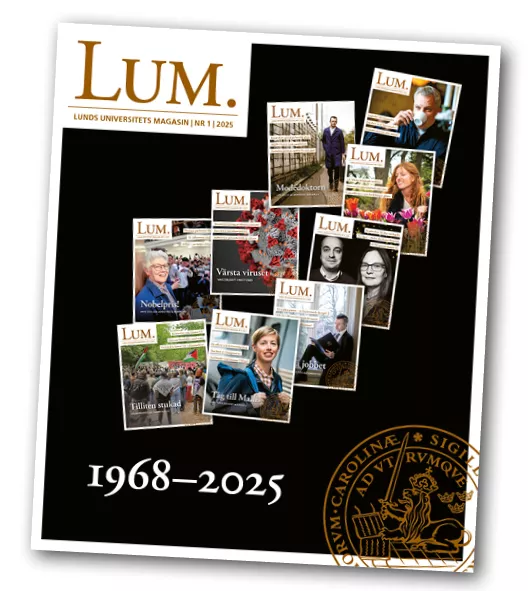Detectives with magnifying glasses and catching and preparing a fish. Those are two of the metaphors that Anna Jonsson and Olof Hallonsten use to explain the relationship between supervisor and student, the various elements of an academic paper such as of reading, gathering and cooking – or rather writing – the paper.
“An academic paper is not merely a product, something that the student should hand in when it is complete. It is about understanding what is happening during the process. Using different metaphors, we want to invite students to reflect on things including the process and method,” says Anna Jonsson, who until recently was a senior lecturer at the School of Economics and Management and now works at Stockholm University.
She has collaborated on research communication with cartoonist Axel Brechensbauer for years. Along with Lund colleagues Olof Hallonsten, Jens Rennstam and Nadja Sörgärde she is editor of a new anthology, Metaphors we supervise by, featuring short essays on supervision. Illustrations in wonderful colours with a spot of humour are central to the book.
“We have cartoon strips to illustrate every metaphor about supervision and writing academic papers that we raise in the book. For example, the picture of a knight that accompanies one of the essays is about inviting a humbler approach to supervision,” says Anna Jonsson.
When Anna Jonsson supervises master’s students, she has regular meetings with them before and during the writing process, as well as in the final stages. Some in groups, some individually, but always aiming to contribute to improved learning.
“Early on, I underline the importance of finding a problem that they themselves think is interesting. After that, it is often a case of narrowing down the problem and defining boundaries. We also have an exercise which involves them looking at old academic papers so as to understand that there is no single template for how to write one. At a midway review, they critically review one another and become aware of generic problems,” says Anna Jonsson.
Two different phases
Olof Hallonsten usually describes the process of academic writing as being divided into a “hunt and gather phase” and a “just do it phase.”
“After reading lots of articles and conducting interviews, a certain feeling of exhaustion tends to arise. But that is when they should shift focus. I said to one of the first students I supervised at the School of Economics and Management, ‘you got it, now you have to do it.’ It became a kind of slogan – or metaphor – for the process of academic writing,” he says.
Anna Jonsson likens academic writing to detective work, in which the supervisor and the student stand on either side of a magnifying glass.
“Academic writing has a lot to do with tacit knowledge, if you don’t have the experience, you need the advice of your supervisor. It is easy for me to say, ‘you should be inquisitive,’ but for the student to be able to assimilate this I need to think about who it is sitting in front of me. What prior understanding do they have? What ideas? Calling the academic writing process ‘detective work’ then becomes a way of creating curiosity around the process,” she says.
What pitfalls do students tend to encounter?
“The most common is that time starts running out. For it to be enjoyable, the student needs time to contemplate, go back and revise. You cannot rush into it. A tip would be to do your homework, read up on the literature and frame the issue,” says Anna Jonsson.
“As an examiner, nothing is as irritating as not understanding what their approach is. Or a student writing that they have studied a certain company, but not what the company actually does,” says Olof Hallonsten.
Anna Jonsson mentions that it is normal for students to not understand the significance of methodological work at first. But by the end of the process of writing an academic paper, their understanding has usually increased greatly.
“You can clearly see that the student has developed. They might start the academic writing work slightly hesitantly, but they are usually proud and assured by the end. That gives me motivation as a supervisor,” says Anna Jonsson.
Supervision: a special occasion
Olof Hallonsten agrees, and calls supervision something of a special occasion – for both the teaching practitioner and student:
“Sometimes I get the impression that students regard getting to have an hour one on one with a teaching practitioner as a special occasion. They might not have had that earlier in their education. They really ought to know what a special occasion it is for us to interact with really able students: They want things, they know things, they listen to what you say, they develop. How could supervising academic papers not be rewarding for us teaching practitioners? It is the most fun part,” he says.
Footnote: Would you like to find out more? In the School of Economics and Management’s podcast, Minds over Matters, Anna and Olof continue their discussion. Available on Acast, Spotify and Apple Podcaster.






